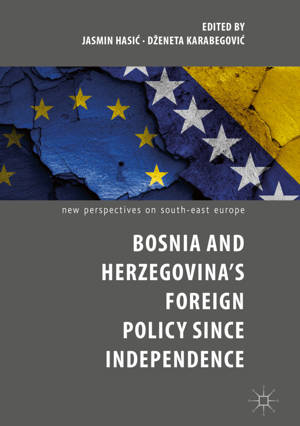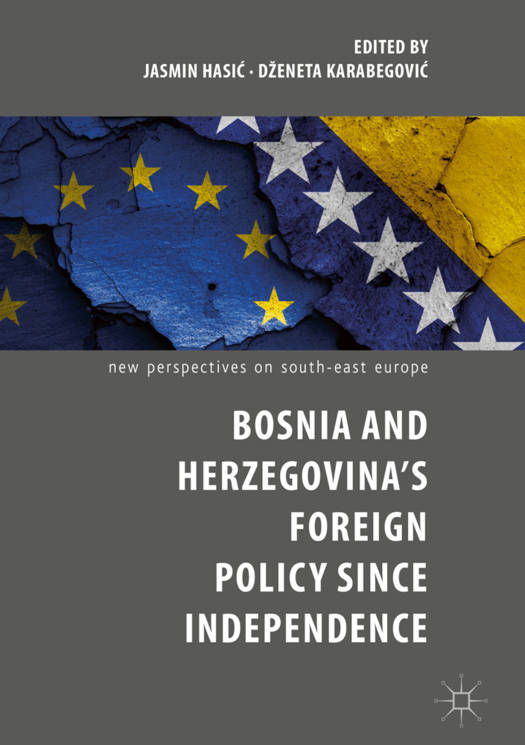
- Retrait gratuit dans votre magasin Club
- 7.000.000 titres dans notre catalogue
- Payer en toute sécurité
- Toujours un magasin près de chez vous
- Retrait gratuit dans votre magasin Club
- 7.000.000 titres dans notre catalogue
- Payer en toute sécurité
- Toujours un magasin près de chez vous
Bosnia and Herzegovina's Foreign Policy Since Independence
126,95 €
+ 253 points
Description
This book is the first to provide a comprehensive and systematic analysis of the foreign policy of Bosnia and Herzegovina, a post-conflict country with an active agency in international affairs. Bridging academic and policy debates, the book summarizes and further examines the first twenty-five years of BiH's foreign policy following the country's independence from Yugoslavia in 1992. Topics covered include conflict and post-conflict periods, Euro-Atlantic integration, political affairs on both local and regional levels, integration with a variety of international organizations and actors, neighboring states, bilateral relations with relevant other states including the United States, Russia, selected EU countries, and Turkey, as well as BiH's diaspora. The book highlights that despite their apparent weakness, post-conflict states have agency to carry out foreign policy goals and engage with the international sphere, including in geopolitics, and thus provides a novel insight into weakstates and their role in international politics.
Spécifications
Parties prenantes
- Editeur:
Contenu
- Nombre de pages :
- 262
- Langue:
- Anglais
- Collection :
Caractéristiques
- EAN:
- 9783030056537
- Date de parution :
- 15-03-19
- Format:
- Livre relié
- Format numérique:
- Genaaid
- Dimensions :
- 148 mm x 210 mm
- Poids :
- 498 g






